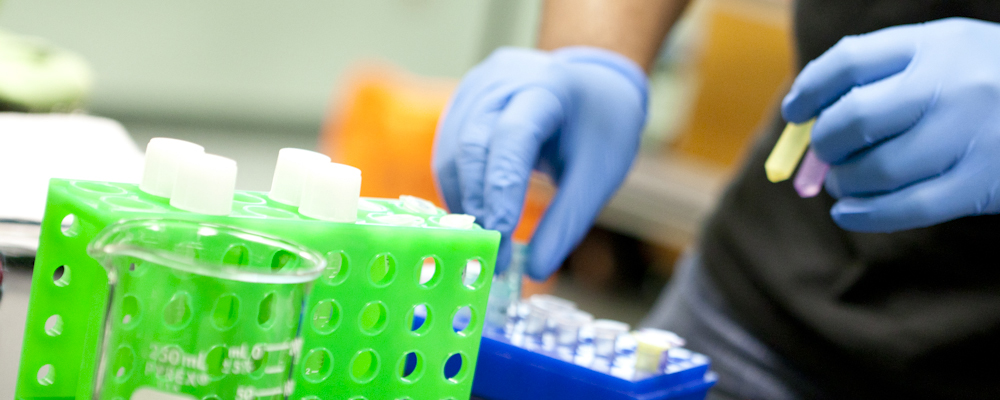24 Introduction to Natural Sciences

Natural Sciences offers Associate of Science (AS) Degrees in Biology, Environmental Science, and Physical Science. Faculty in the Natural Sciences are actively involved in research both on and off campus. Students interested in the Natural Sciences are encouraged to conduct research projects under faculty supervision.
The Department of Natural Sciences is committed to providing an interactive learning environment that incorporates the lived experience, to providing extracurricular venues that enhance student learning, to integrating a hypothesis-driven research component into the science curriculum, to diversifying the natural sciences by increasing underrepresented minority participation, and to encouraging students to pursue advanced degrees in the Natural Sciences.
Main Tracks and Programs within the Discipline
The Natural Science First Year seminar (NSF101) introduces students to the three majors: A.S. in Biology, A.S. in Environmental Science and A.S. in Physical Sciences.
- The A.S in Biology program has two tracks: (1) General Biology and, (2) Biotechnology track.
- The General Biology track – introduces students to hypothesis-driven science and hands-on research through required coursework and supervised research laboratory internships, to connect students, biology and lived-experience through an integrated curriculum and to prepare students for successful transfer to a four-year college and ultimately graduate or go to medical school.
- The Biotechnology Track – focuses on the science behind biofuels, genetically modified foods, biomanufacturing, cell and tissue culture, drug development, genomic studies, and bioinformatics. You’ll also have opportunities to participate in undergraduate research projects and internships in biotechnology industries. As part of the track you will receive career advice and network opportunities from Biotechnology Industry Career Advisors.
- The A.S in Environmental Science program has three tracks: (1) General Environmental Science (2) Sustainable Urban Agriculture and (3) Animal Science.
- The General Environmental Science track is for students interested in solving environmental challenges in a changing world. In this option you will learn how ecological systems work and how they can be improved to provide solutions for environmental problems including natural resource management, biodiversity conservation, and climate change. Students in this track are involved in internships and research projects focused on coastal resilience, water quality, air pollution, climate and weather, geospatial technology, urban sustainability, and park management and restoration. This option includes courses such as geographic information systems (GIS), microbiology, ecology, and environmental science. Students in this track conduct internship opportunities with a variety of organizations including: the Newtown Creek Alliance, Natural Areas Conservancy, Billion Oyster Project, NYC Piping Plover Project, Department of Environmental Protection, and NYC Department of Parks & Recreation.
- The Sustainable Urban Agriculture (SUA) track aims to cultivate leaders in urban agriculture. The SUA track provides students and community members with knowledge and skills in agroecological sciences and food solutions, with an emphasis on organic agriculture and farming in urban landscapes including both soil based and controlled environmental systems/hydroponics. Students will learn horticultural skills while performing tasks at the LAGCC Urban Farm and Hydroponics Research Center. This option includes courses such as plant science, soil science, sustainable vegetable production, sustainable urban agriculture, food and culture, and ecology. Students will work collaboratively and network with community gardens and kitchens across NYC. Students will be eligible to participate in the USDA funded 3-week summer, paid, internship program “Project SEMBRAR”.
- The Animal Sciences track is for students interested in working with animals with a focus on disseminating new knowledge about the biology and management of animals to make a positive impact in the world. Animal Science offers courses such as genetics, animal physiology, microbiology and animal behavior and ethics. This option provides students with the scientific knowledge, skills, and experience needed to be competitive for entry into undergraduate fields such as Veterinary Science/Medicine, Companion Animal Science, Equine Science, Laboratory Science, Production Animal Science, and Wildlife Science to name a few. Students in this track will be placed into internships with the wildlife conservation society to work with local zoos such as Central Park Zoo, Queens Zoo, Prospect Park Zoo, laboratory animal research facilities, such as Weill Cornell School of Medicine and Memorial Sloan Kettering Cancer Center, equine and dairy facilities in upstate NY and Long Island. This track offers a USDA funded, 3-week summer internship on Rutgers University farm and a fully-funded transfer scholarship for students with outstanding GPA to Rutgers University, Animal Science program.
- The A.S in Physical Sciences, has two tracks: (1) Physics track and (2) Chemistry track.
- A degree in the physical sciences provides a variety of employment opportunities in diverse fields such as computer science, education, law, medicine, technical journalism, finance, and energy. Relevant careers include research scientist, forensic technician, medical technician, materials scientist, technical sales, and many more. The degree is also an excellent foundation for further academic study. Students in the Physics track take a combination of classroom and lab courses in physics. Courses include General Physics I, II; General Chemistry I, II; Calculus I, II, III; Research Methods in Physical Sciences; Modern Physics.
- Students in the Chemistry Track participate in classroom study and laboratory coursework. Courses include General Chemistry I, II; General Physics I; Organic chemistry I, II; Research Methods in Physical Sciences.
Employment is expected to grow by 9% for physicists and 4% for chemists during the period from 2018–2028. These rates are at or above the national average for all careers.
Additional information can be found on the Natural Sciences Department website.
Example CAREERS FROM THE BUREAU OF LABOR STATISTICS, WITH SALARY
- Physicians and Surgeons (Salary information for physicians and surgeons)
- Environmental Scientists and Specialists (Salary information for environmental scientists and specialists)
- Agricultural and Food Scientists (Salary information for agricultural and food scientists)
- Veterinarian (Salary information for veterinarians)
- Physicists and Astronomers (Salary information for physicists and astronomers)
- Chemical Engineer (Salary information for chemical engineers)
